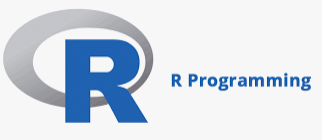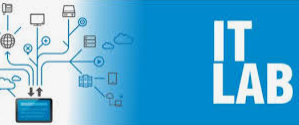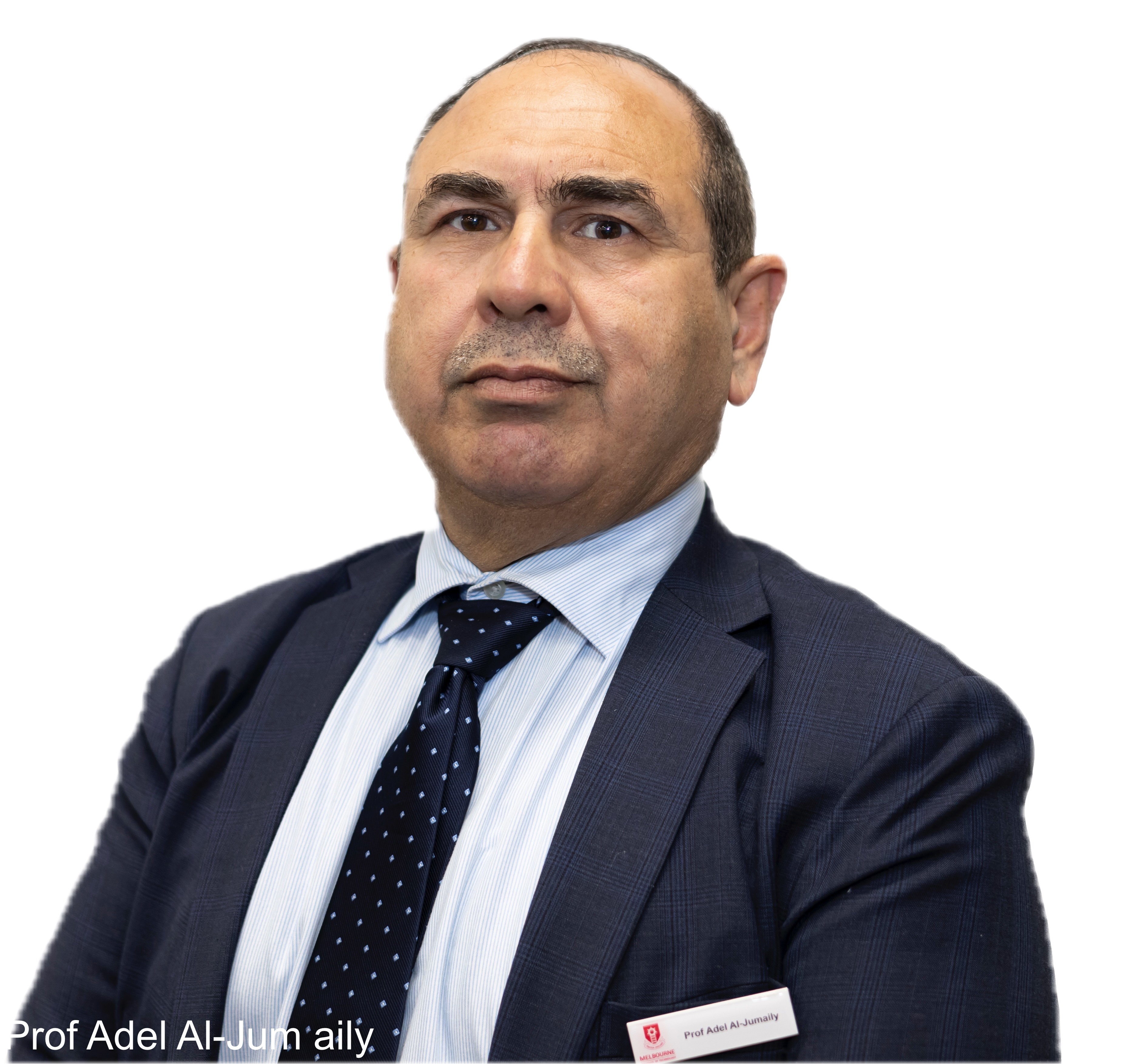What do Google, Netflix and Amazon have in common? These giants have built their success by analysing customer data. Businesses today rely to respond effectively to customers. Data has become a valuable currency. As the amount of data created grows exponentially, data analysts play a critical role in helping make sense of it.
DURATION
3 years (6 trimesters) full-time or equivalent part-timeINTAKES
March, July, NovemberVTAC CODE
9470110042UAC CODE
570125LOCATION
Melbourne, SydneyAQF LEVEL
Level 7| Duration 3 years (6 trimesters) full-time or equivalent part-time | |
| Intakes March, July, November | |
| VTAC Code 9470110042 | |
| UAC Code 570125 | |
| Location Melbourne, Sydney | |
| AQF Level Level 7 |
COURSE DETAILS
The Bachelor of Data Analytics provides you with valuable knowledge in data analytic lifecycles and applying key industry tools.
Get ready for an exciting career in areas including smart technologies applications, such as the Internet of Things, smart homes, robotics and deep learning. You’ll develop practical skills and methodologies to think differently.
As smart technologies evolve, they create massive volumes of data. Managing, interpreting, storing and securing this data is a challenge to existing technologies. We expect there to be a growing demand for dedicated data analytics organisations and experts to service them. As a graduate of the Bachelor of Data Analytics you’ll have the foundations needed to thrive as the industry grows.
Specialised electives will prepare you for a career in emerging industries including smart technologies and advanced artificial intelligence. You’ll be ideally placed to drive business innovation.
In addition, you’ll learn theories and practices in deep learning, neural networks and advanced smart algorithms. This course will expose you to machine learning tools and technologies that you can apply to investigate real world data problems.
Additional specialisations and majors may be offered in the future.
These include:
- Advanced automation and robotics
- Machine-to-machine and human-to-machine communication
- Artificial intelligence and machine learning
- Sensor technology and data analytics
DATA DRIVEN SUCCESS
Imagine a career in an industry so new it's evolving even as you study. Discover a career where your skills make you a sought after, highly-paid professional leading an industry as it grows.
Data Analytics is where data science, statistics, AI and machine learning meet. Big data and analytics impact every organisation, from technology start-ups to multinational companies. You'll learn to analyse massive amounts of structured and unstructured data, provide insights, and use the data to innovate and create business solutions.
You will understand the entire data lifecycle, including the phases that define how information is created, gathered, processed, used, and analysed.
The unparalleled growth in data-driven technologies has created new career opportunities in health, science, finance, law, astronomy, geology and beyond.
This course opens the door to opportunities in smart technologies, like the Internet of Things, smart homes, robotics and deep learning applications.
THIS COURSE INCLUDES:
FLIPPED CLASSROOM
Get in the driver's seat and take control of your learning - with flipped classrooms, you’ll arrive in class prepared and ready to build on your learning.
CUTTING EDGE TECHNOLOGY
Advance your understanding of Artificial Intelligence and machine learning technologies.
SUPPORTIVE TEACHING
We use an academic support program called InSPIRE to tailor our learning to each student.
SOLVE REAL PROBLEMS
Learn how to think creatively and create innovative, data-driven solutions to real-world problems.
BECOME AN EXPERT
Develop comprehensive knowledge of data analytics lifecycles.
LEARN WITH INDUSTRY
Our curriculum is based on solving real world problems. MIT has a strong reputation for Work-Integrated Learning.
CAREER PATHS
A career in data analytics will give you great job prospects.
Roles include:
- Data Architect
- Data Analyst
- Data Scientist
- Fraud Analyst
- Corporate Strategy Analyst
- Business (Intelligence) Analyst
- IT Systems Analyst
- Social Media Data Analyst
- Operations Analyst
- Marketing Analyst
- Applications Architect
- Enterprise Architect
PROFESSIONAL RECOGNITION AND ACCREDITATION
A respected reputation
The Bachelor of Data Analytics is provisionally accredited by the Australian Computer Society (ACS) at the Professional Level.
MIT’s courses are accredited by TEQSA Tertiary Education Quality and Standards Agency. TEQSA is Australia’s independent national quality assurance and regulatory agency for higher education in Australia; see https://www.teqsa.gov.au/
COURSE STRUCTURE
The Bachelor of Data Analytics requires 18 Common Core units, a capstone Industry-based Project (attuned to major) (2 units) and electives (to be chosen from approved list) (4 units).
Each unit consists of 15 credit points. A full-time study load is 60 credit points per trimester. The degree will run for three years with 360 credit points (15 points x 24 units).
Data analysts are more than just the numbers people - they’re at the forefront of business strategy and decision making. Employers are demanding graduates who are innovative thinkers, who can work collaboratively and can problem solve to create cost effective business solutions.
That’s why we focus on meaningful group learning and building industry connections for all students in our industry projects.
These units are designed to provide you with real-world experience, working for an industry client.
- Develop vital soft skills, like leadership, communication and negotiation, when you communicate and collaborate with a team of your peers
- Conduct high level research, analysis and development
- Tackle complex real-world problems with technical and creative skills
In the final year, students on a Bachelor of Data Analytics consolidate their learning through two capstone projects.
BDA303 Data Analytics Capstone Project 1
BDA304 Data Analytics Capstone Project 2
Read more about our Industry-Based Projects and Internships
All students must complete the zero credit AIM100 Academic Integrity Module
Common Core Units
- BB101 Business Communications
- BN103 Platform Technologies
- BN104 Operating Systems
- BN106 Networking Fundamentals
- BN109 Web and Multimedia Systems
- BN110 Information Systems Fundamentals
- BN111 Programming Fundamentals
- BDA112 Data Science Fundamentals
- BN200 Network Security Fundamentals
- BN204 Database Technologies
- BDA215 Software Engineering and Project Management
- BDA301 Entrepreneurship and Innovation
- BDA211 Data Warehousing
- BDA212 Statistics and Decision Models
- BDA213 Data Analytics and Smart Applications
- BDA214 Machine Learning
- BDA311 Big Data Applications
- BDA312 Deep Learning Applications
Electives
Capstone Units (Industry Projects)
*Additional Fee
Bachelor of Data Analytics
The table below gives an indication of the peer cohort for new students at Melbourne Institute of Technology. It provides data on students who commenced Bachelor of Data Analytics in the academic year 2024. This includes those admitted through all offer rounds, across both Melbourne and Sydney Campus, and international students studying Bachelor of Data Analytics at Melbourne Institute of Technology.
| Applicant background | Full year intake [2024] | |
| Number of students | Percentage of all students | |
| (A) Past higher education study (includes a bridging or enabling course) |
4 | 9.30% |
| (B) Past vocational education and training (VET) study | L/N | L/N |
(C) Recent secondary education
|
- | - |
|
- | - |
|
39 | 90.70% |
| (D) Work and life experience (Admitted on the basis of previous achievement other than the above) | L/N | L/N |
| International students | 42 | 97.67% |
| All students | 43 | 100.0% |
Applicant background - Full year intake [2024]
[Number of students | Percentage of all students]
(A) Past higher education study (includes a bridging or enabling course)
4
9.30%
(B) Past vocational education and training (VET) study
L/N
L/N
(C) Recent secondary education
Admitted solely on the basis of ATAR (regardless of whether this includes the impact of adjustment factors such as equity or subject bonus points)
-
-
Admitted where both ATAR and additional criteria were considered (e.g. portfolio, audition, extra test, early offer conditional on minimum ATAR)
-
-
Admitted on the basis of other criteria only and ATAR was not a factor (e.g. special consideration, audition alone, schools recommendation scheme with no minimum ATAR requirement)
39
90.70%
(D) Work and life experience (Admitted on the basis of previous achievement other than the above)
L/N
L/N
International students
42
97.67%
All students
43
100.0%
Notes:
- L/N - Low numbers: the number of students is less than 5.
- N/A - Data not available for this item.
- N/P - Data not published for this item.
Read our institute-wide student profile
COURSE LEARNING OUTCOMES
Bachelor of Data Analytics students will achieve the following course learning outcomes:
- Demonstrate a coherent understanding of fundamental theories and practices in computing technologies, and possess the ability to apply skills and knowledge of a selected computing discipline to solve contemporary real‐world problems.
- Design, develop and evaluate computing solutions in contemporary industry applications using available tools, technologies, and methodologies, with demonstrated understanding of business practices, ethics, and technological landscapes.
- Plan and deploy computing solutions for industry problems with demonstrated knowledge of industry best practice and business acumen.
- Investigate and recommend innovative computing solutions to complex industry problems, with the demonstrated ability to independently learn and critically analyse.
- Collaboratively lead a team of professionals to achieve synergetic goals and to effectively communicate processes and results to management and technical audiences.
- Identify and evaluate solutions to data analytics problems based on business requirements and to design and develop effective data analytics applications using available specialist tools and technologies.
- Plan and deploy data analytics solutions for complex industry problems with demonstrated skills and knowledge of data analytics tools, methodologies and data science lifecycles.
- Investigate and evaluate the performance of data analytics systems in consideration of the business context and industry best practices and to recommend appropriate solutions.
What skills will you gain?
With a Bachelor of Data Analytics you will gain core skills in:
- Data visualisation
- Data modelling
- Up to date software and programming, including Tableau, Python, R, SQL and NoSQL, MATLAB
- Statistical analysis and strategy
- Data driven decision making
- Leadership and strategy
- Critical thinking and communication.
AQF level 7
Summary:
Graduates at this level will have broad knowledge and skills for professional work and/or further learning.
Knowledge:
Graduates at this level will have broad and coherent theoretical and technical knowledge with depth in one or more disciplines or areas of practice [K1]
Skills:
Graduates at this level will have well-developed cognitive, technical and communication skills to select and apply methods and technologies to:
- Analyse and evaluate information to complete a range of activities [S1]
- Analyse, generate and transmit solutions to unpredictable and sometimes complex problems [S2]
- Transmit knowledge, skills and ideas to others [S3]
Application of knowledge and skills:
Graduates at this level will apply knowledge and skills to demonstrate autonomy, judgement and defined responsibility: Graduates at this level will apply knowledge and skills to demonstrate autonomy, well-developed judgement and responsibility:
- In contexts that require self-directed work and learning [A1]
- Within broad parameters to provide specialist advice and functions [A2]
ENTRY REQUIREMENTS
Applicants must meet the academic entry requirements including prerequisites for their chosen course, and;
Applicants must meet the minimum English language requirement for their chosen course, and;
Domestic Applicants must be 17 years of age as at the commencement date of their chosen course or unit.
Admission criteria for applicants with recent secondary education
Applicants with recent secondary education are those who completed Year 12 within the last two years. You’ll need to satisfy the following requirements:
- Successful completion of your Victorian Certificate of Education (VCE), HSC (Higher Secondary Certificate) or the equivalent in your state or territory, or
- Successful completion of the International Baccalaureate.
Prerequisites for students from Victoria:
Units 3 and 4: a study score of at least 20 in any English in VCE or equivalent;
Units 3 and 4: a study score of at least 20 in any Mathematics in VCE or equivalent.
Prerequisites for students from New South Wales:
Band 2 or higher in any English in HSC;
Band 2 or higher in any Mathematics in HSC or equivalent.
Admission Criteria for Non-year 12 Applicants
Non-year 12 Prerequisite
Compulsory: As for Year 12 or equivalent.
Applicants with higher education study
Applicants are eligible for admission if they’ve completed full-time equivalent higher education study (the number of units or courses will vary depending on your previous institution; however, this is equivalent to 4 units at MIT).
If you don't meet this requirement, we'll assess your admission on the basis of your previous academic history, which may include your higher education study results, Year 12 or equivalent study scores, and your personal statement.
Applicants with vocational education and training (VET) study
You must have completed an AQF Certificate IV or above from a Registered Training Organisation (RTO). You must also meet any pre-requisites prescribed for the course.
Applications with Work and Life Experience
1. Requirements for applicants who did not complete Year 12:
Applicants under this category will be assessed on a case-by-case basis on one or more of the following
- Substantial relevant work experience that demonstrates that you’ve satisfied the entry requirements for the course, or
- Completion of any relevant non-formal courses, and
- A personal statement outlining your motivation to study the course and details of personal circumstances, including your life and work experience. You should provide any aspect of your personal history that may support your application, including community service, work experience, and achievements.
2. Requirements for applicants who completed Year 12 more than two years ago:
Applicants who completed their Year 12 studies more than two years ago but have not completed any VET or higher education studies are assessed according to their Year 12 results.
Applicants with Bridging and enabling course
You're eligible to apply if you've completed a Foundation Studies or Tertiary Preparatory program at a university, TAFE or Registered Training Organisation (RTO).
Additional Information
Aboriginal and Torres Strait Islander people
Aboriginal and Torres Strait Islander applicants are assessed in the same way as applicants under the above categories.
Domestic applicants with overseas qualifications
Applicants with overseas qualifications need to establish whether their qualifications are equivalent to Australian qualifications. VTAC will advise MIT of the level of course in terms of the Australian Qualifications Framework according to NOOSR (the National Office for Overseas Skills Recognition) guidelines.
The Admissions Officer at MIT will then assess whether the qualification is suitable for entry into that course according to the course entry requirements.
English Language Requirements
Applicants with overseas qualifications must satisfy English language requirements in addition to meeting the academic requirements for the course.
Applicants with the following qualifications/English Language Tests may satisfy English requirements.
First Language English
If you completed Senior Secondary or Tertiary studies from a country where English is the first language.
Independent English Language Test Score
You need to achieve the minimum scores, as shown below.
| IELTS Academic |
Overall score 6.0 (no band less than 5.5) |
|---|---|
| TOFEL ibt |
Overall score 60-78 with minimum scores: Reading 12, Listening 11, Speaking 17, Writing 20 |
| PTE Academic |
Overall score 52 with (no score less than 46) |
| Cambridge CAE |
CAE score of 169 ( no band less than 162) |
IELTS Academic
Overall score 6.0
(no band less than 5.5)
TOFEL ibt
Overall score 60-78 with minimum scores: Reading 12, Listening 11, Speaking 17, Writing 20
PTE Academic
Overall score 52 with (no score less than 46)
Cambridge CAE
CAE score of 169 ( no band less than 162)
Pathways
TAFE/VET Diploma and Advanced Diploma graduates may be eligible to apply for Credit Transfer. You can get up to one year credit transfer for a relevant Diploma and up to 1.5 years for a relevant Advanced Diploma.
Credit Transfer
Credit transfer provides students with credit for learning already achieved. Applicants are assessed on a case-by-case basis. Learn more about credit transfer.
Applications for credit transfer must be made before or during orientation and enrolment week.
Recognition of Prior LearningRecognition of prior learning (RPL) allows students to gain credit towards their course based on their prior learning (including formal, informal and non‐formal learning). Applicants are assessed on a case-by-case basis. Learn more about credit transfer.
Applications for Recognition of Prior Learning must be made before or during orientation and enrolment week.
For further information, see the links below:
WE USE THE SAME TOOLS AS INDUSTRY PROFESSIONALS






State of the art facilitie


FEE INFORMATION
Study now and pay later with FEE-HELP.Students studying at MIT may be eligible for FEE-HELP. FEE-HELP is a loan scheme that assists eligible fee-paying students to pay their tuition fees. An eligible person may borrow up to the FEE-HELP limit to pay tuition fees over their lifetime.
Read more about FEE-HELP or visit Study Assist.
Tuition feesFor fee information visit the tuition fee page.
Financial assistance
Youth and student allowances
For details on Youth Allowance, Austudy and ABSTUDY, visit Human Services.
FEE INFORMATION
Tuition FeesFor the latest fee information visit the Tuition Fee Page.
If you have any questions regarding fees or payment options, please contact the Admissions Team at enquiries@mit.edu.au
FREQUENTLY ASKED QUESTIONS
What is data analytics?
Find answers to your FAQ here:
HOW TO APPLY
Step 1: Check the course entry requirements.
- Make sure you meet the entry requirements for your chosen course.
Step 2: What to include with your application?
- Evidence of completion of your previous studies that is award certificates or transcript with completion confirmed.
- Proof of identity—for example, your passport or birth certificate or citizenship.
- Evidence of English language skills (if you completed studies from a non-English speaking country).
- Proof of your permanent residency or citizenship if you were born overseas.
Certifying your academic documents
You should provide certified copies of your academic and other essential documents at the time of application.
Step 3: Apply
Apply direct to MIT using our direct Application Portal. The following applicants should apply directly:
- Postgraduate applicants
- Non-current Year 12 applicants
Current Year 12 students (VIC)
If you are a Year 12 student from VIC, you should apply through VTAC. VTAC applications are made online through the VTAC website. To learn more about the application process, visit VTAC.
Apply via VTACCurrent Year 12 students (NSW)
If you are a Year 12 student from NSW, you should apply through UAC. UAC applications are made online through the UAC website. To learn more about the application process, visit the UAC website
Apply via UACWHAT TO DO AFTER YOU HAVE APPLIED
The application processing time for direct applications is five working days after receiving the application at MIT. It may take longer during peak periods.
If you applied through VTAC, offers are released at different times. For more information on VTAC offer rounds and important dates, please visit the VTAC page.
Depending on your application method, if your application is successful, you will receive:
- Offer through your VTAC account if you applied through VTAC
- Offer by email if you applied directly to MIT.
How to accept your offer
Deferment of offer
COURSE DETAILS
The Bachelor of Data Analytics provides you with valuable knowledge in data analytic lifecycles and applying key industry tools.
Get ready for an exciting career in areas including smart technologies applications, such as the Internet of Things, smart homes, robotics and deep learning. You’ll develop practical skills and methodologies to think differently.
As smart technologies evolve, they create massive volumes of data. Managing, interpreting, storing and securing this data is a challenge to existing technologies. We expect there to be a growing demand for dedicated data analytics organisations and experts to service them. As a graduate of the Bachelor of Data Analytics you’ll have the foundations needed to thrive as the industry grows.
Specialised electives will prepare you for a career in emerging industries including smart technologies and advanced artificial intelligence. You’ll be ideally placed to drive business innovation.
In addition, you’ll learn theories and practices in deep learning, neural networks and advanced smart algorithms. This course will expose you to machine learning tools and technologies that you can apply to investigate real world data problems.
Additional specialisations and majors may be offered in the future.
These include:
- Advanced automation and robotics
- Machine-to-machine and human-to-machine communication
- Artificial intelligence and machine learning
- Sensor technology and data analytics
DATA DRIVEN SUCCESS
Imagine a career in an industry so new it's evolving even as you study. Discover a career where your skills make you a sought after, highly-paid professional leading an industry as it grows.
Data Analytics is where data science, statistics, AI and machine learning meet. Big data and analytics impact every organisation, from technology start-ups to multinational companies. You'll learn to analyse massive amounts of structured and unstructured data, provide insights, and use the data to innovate and create business solutions.
You will understand the entire data lifecycle, including the phases that define how information is created, gathered, processed, used, and analysed.
The unparalleled growth in data-driven technologies has created new career opportunities in health, science, finance, law, astronomy, geology and beyond.
This course opens the door to opportunities in smart technologies, like the Internet of Things, smart homes, robotics and deep learning applications.
THIS COURSE INCLUDES:
FLIPPED CLASSROOM
Get in the driver's seat and take control of your learning - with flipped classrooms, you’ll arrive in class prepared and ready to build on your learning.
CUTTING EDGE TECHNOLOGY
Advance your understanding of Artificial Intelligence and machine learning technologies.
SUPPORTIVE TEACHING
We use an academic support program called InSPIRE to tailor our learning to each student.
SOLVE REAL PROBLEMS
Learn how to think creatively and create innovative, data-driven solutions to real-world problems.
BECOME AN EXPERT
Develop comprehensive knowledge of data analytics lifecycles.
LEARN WITH INDUSTRY
Our curriculum is based on solving real world problems. MIT has a strong reputation for Work-Integrated Learning.
CAREER PATHS
A career in data analytics will give you great job prospects.
Roles include:
- Data Architect
- Data Analyst
- Data Scientist
- Fraud Analyst
- Corporate Strategy Analyst
- Business (Intelligence) Analyst
- IT Systems Analyst
- Social Media Data Analyst
- Operations Analyst
- Marketing Analyst
- Applications Architect
- Enterprise Architect
PROFESSIONAL RECOGNITION AND ACCREDITATION
A respected reputation
The Bachelor of Data Analytics is provisionally accredited by the Australian Computer Society (ACS) at the Professional Level.
MIT’s courses are accredited by TEQSA Tertiary Education Quality and Standards Agency. TEQSA is Australia’s independent national quality assurance and regulatory agency for higher education in Australia; see https://www.teqsa.gov.au/
COURSE STRUCTURE
The Bachelor of Data Analytics requires 18 Common Core units, a capstone Industry-based Project (attuned to major) (2 units) and electives (to be chosen from approved list) (4 units).
Each unit consists of 15 credit points. A full-time study load is 60 credit points per trimester. The degree will run for three years with 360 credit points (15 points x 24 units).
Data analysts are more than just the numbers people - they’re at the forefront of business strategy and decision making. Employers are demanding graduates who are innovative thinkers, who can work collaboratively and can problem solve to create cost effective business solutions.
That’s why we focus on meaningful group learning and building industry connections for all students in our industry projects.
These units are designed to provide you with real-world experience, working for an industry client.
- Develop vital soft skills, like leadership, communication and negotiation, when you communicate and collaborate with a team of your peers
- Conduct high level research, analysis and development
- Tackle complex real-world problems with technical and creative skills
In the final year, students on a Bachelor of Data Analytics consolidate their learning through two capstone projects.
BDA303 Data Analytics Capstone Project 1
BDA304 Data Analytics Capstone Project 2
Read more about our Industry-Based Projects and Internships
All students must complete the zero credit AIM100 Academic Integrity Module
Common Core Units
- BB101 Business Communications
- BN103 Platform Technologies
- BN104 Operating Systems
- BN106 Networking Fundamentals
- BN109 Web and Multimedia Systems
- BN110 Information Systems Fundamentals
- BN111 Programming Fundamentals
- BDA112 Data Science Fundamentals
- BN200 Network Security Fundamentals
- BN204 Database Technologies
- BDA215 Software Engineering and Project Management
- BDA301 Entrepreneurship and Innovation
- BDA211 Data Warehousing
- BDA212 Statistics and Decision Models
- BDA213 Data Analytics and Smart Applications
- BDA214 Machine Learning
- BDA311 Big Data Applications
- BDA312 Deep Learning Applications
Electives
Capstone Units (Industry Projects)
*Additional Fee
Bachelor of Data Analytics
The table below gives an indication of the peer cohort for new students at Melbourne Institute of Technology. It provides data on students who commenced Bachelor of Data Analytics in the academic year 2024. This includes those admitted through all offer rounds, across both Melbourne and Sydney Campus, and international students studying Bachelor of Data Analytics at Melbourne Institute of Technology.
| Applicant background | Full year intake [2024] | |
| Number of students | Percentage of all students | |
| (A) Past higher education study (includes a bridging or enabling course) |
4 | 9.30% |
| (B) Past vocational education and training (VET) study | L/N | L/N |
(C) Recent secondary education
|
- | - |
|
- | - |
|
39 | 90.70% |
| (D) Work and life experience (Admitted on the basis of previous achievement other than the above) | L/N | L/N |
| International students | 42 | 97.67% |
| All students | 43 | 100.0% |
Applicant background - Full year intake [2024]
[Number of students | Percentage of all students]
(A) Past higher education study (includes a bridging or enabling course)
4
9.30%
(B) Past vocational education and training (VET) study
L/N
L/N
(C) Recent secondary education
Admitted solely on the basis of ATAR (regardless of whether this includes the impact of adjustment factors such as equity or subject bonus points)
-
-
Admitted where both ATAR and additional criteria were considered (e.g. portfolio, audition, extra test, early offer conditional on minimum ATAR)
-
-
Admitted on the basis of other criteria only and ATAR was not a factor (e.g. special consideration, audition alone, schools recommendation scheme with no minimum ATAR requirement)
39
90.70%
(D) Work and life experience (Admitted on the basis of previous achievement other than the above)
L/N
L/N
International students
42
97.67%
All students
43
100.0%
Notes:
- L/N - Low numbers: the number of students is less than 5.
- N/A - Data not available for this item.
- N/P - Data not published for this item.
Read our institute-wide student profile
COURSE LEARNING OUTCOMES
Bachelor of Data Analytics students will achieve the following course learning outcomes:
- Demonstrate a coherent understanding of fundamental theories and practices in computing technologies, and possess the ability to apply skills and knowledge of a selected computing discipline to solve contemporary real‐world problems.
- Design, develop and evaluate computing solutions in contemporary industry applications using available tools, technologies, and methodologies, with demonstrated understanding of business practices, ethics, and technological landscapes.
- Plan and deploy computing solutions for industry problems with demonstrated knowledge of industry best practice and business acumen.
- Investigate and recommend innovative computing solutions to complex industry problems, with the demonstrated ability to independently learn and critically analyse.
- Collaboratively lead a team of professionals to achieve synergetic goals and to effectively communicate processes and results to management and technical audiences.
- Identify and evaluate solutions to data analytics problems based on business requirements and to design and develop effective data analytics applications using available specialist tools and technologies.
- Plan and deploy data analytics solutions for complex industry problems with demonstrated skills and knowledge of data analytics tools, methodologies and data science lifecycles.
- Investigate and evaluate the performance of data analytics systems in consideration of the business context and industry best practices and to recommend appropriate solutions.
What skills will you gain?
With a Bachelor of Data Analytics you will gain core skills in:
- Data visualisation
- Data modelling
- Up to date software and programming, including Tableau, Python, R, SQL and NoSQL, MATLAB
- Statistical analysis and strategy
- Data driven decision making
- Leadership and strategy
- Critical thinking and communication.
AQF level 7
Summary:
Graduates at this level will have broad knowledge and skills for professional work and/or further learning.
Knowledge:
Graduates at this level will have broad and coherent theoretical and technical knowledge with depth in one or more disciplines or areas of practice [K1]
Skills:
Graduates at this level will have well-developed cognitive, technical and communication skills to select and apply methods and technologies to:
- Analyse and evaluate information to complete a range of activities [S1]
- Analyse, generate and transmit solutions to unpredictable and sometimes complex problems [S2]
- Transmit knowledge, skills and ideas to others [S3]
Application of knowledge and skills:
Graduates at this level will apply knowledge and skills to demonstrate autonomy, judgement and defined responsibility: Graduates at this level will apply knowledge and skills to demonstrate autonomy, well-developed judgement and responsibility:
- In contexts that require self-directed work and learning [A1]
- Within broad parameters to provide specialist advice and functions [A2]
ENTRY REQUIREMENTS
Applicants must meet the academic entry requirements including prerequisites for their chosen course, and;
Applicants must meet the minimum English language requirement for their chosen course, and;
Domestic Applicants must be 17 years of age as at the commencement date of their chosen course or unit.
Admission criteria for applicants with recent secondary education
Applicants with recent secondary education are those who completed Year 12 within the last two years. You’ll need to satisfy the following requirements:
- Successful completion of your Victorian Certificate of Education (VCE), HSC (Higher Secondary Certificate) or the equivalent in your state or territory, or
- Successful completion of the International Baccalaureate.
Prerequisites for students from Victoria:
Units 3 and 4: a study score of at least 20 in any English in VCE or equivalent;
Units 3 and 4: a study score of at least 20 in any Mathematics in VCE or equivalent.
Prerequisites for students from New South Wales:
Band 2 or higher in any English in HSC;
Band 2 or higher in any Mathematics in HSC or equivalent.
Admission Criteria for Non-year 12 Applicants
Non-year 12 Prerequisite
Compulsory: As for Year 12 or equivalent.
Applicants with higher education study
Applicants are eligible for admission if they’ve completed full-time equivalent higher education study (the number of units or courses will vary depending on your previous institution; however, this is equivalent to 4 units at MIT).
If you don't meet this requirement, we'll assess your admission on the basis of your previous academic history, which may include your higher education study results, Year 12 or equivalent study scores, and your personal statement.
Applicants with vocational education and training (VET) study
You must have completed an AQF Certificate IV or above from a Registered Training Organisation (RTO). You must also meet any pre-requisites prescribed for the course.
Applications with Work and Life Experience
1. Requirements for applicants who did not complete Year 12:
Applicants under this category will be assessed on a case-by-case basis on one or more of the following
- Substantial relevant work experience that demonstrates that you’ve satisfied the entry requirements for the course, or
- Completion of any relevant non-formal courses, and
- A personal statement outlining your motivation to study the course and details of personal circumstances, including your life and work experience. You should provide any aspect of your personal history that may support your application, including community service, work experience, and achievements.
2. Requirements for applicants who completed Year 12 more than two years ago:
Applicants who completed their Year 12 studies more than two years ago but have not completed any VET or higher education studies are assessed according to their Year 12 results.
Applicants with Bridging and enabling course
You're eligible to apply if you've completed a Foundation Studies or Tertiary Preparatory program at a university, TAFE or Registered Training Organisation (RTO).
Additional Information
Aboriginal and Torres Strait Islander people
Aboriginal and Torres Strait Islander applicants are assessed in the same way as applicants under the above categories.
Domestic applicants with overseas qualifications
Applicants with overseas qualifications need to establish whether their qualifications are equivalent to Australian qualifications. VTAC will advise MIT of the level of course in terms of the Australian Qualifications Framework according to NOOSR (the National Office for Overseas Skills Recognition) guidelines.
The Admissions Officer at MIT will then assess whether the qualification is suitable for entry into that course according to the course entry requirements.
English Language Requirements
Applicants with overseas qualifications must satisfy English language requirements in addition to meeting the academic requirements for the course.
Applicants with the following qualifications/English Language Tests may satisfy English requirements.
First Language English
If you completed Senior Secondary or Tertiary studies from a country where English is the first language.
Independent English Language Test Score
You need to achieve the minimum scores, as shown below.
| IELTS Academic |
Overall score 6.0 (no band less than 5.5) |
|---|---|
| TOFEL ibt |
Overall score 60-78 with minimum scores: Reading 12, Listening 11, Speaking 17, Writing 20 |
| PTE Academic |
Overall score 52 with (no score less than 46) |
| Cambridge CAE |
CAE score of 169 ( no band less than 162) |
IELTS Academic
Overall score 6.0
(no band less than 5.5)
TOFEL ibt
Overall score 60-78 with minimum scores: Reading 12, Listening 11, Speaking 17, Writing 20
PTE Academic
Overall score 52 with (no score less than 46)
Cambridge CAE
CAE score of 169 ( no band less than 162)
Pathways
TAFE/VET Diploma and Advanced Diploma graduates may be eligible to apply for Credit Transfer. You can get up to one year credit transfer for a relevant Diploma and up to 1.5 years for a relevant Advanced Diploma.
Credit Transfer
Credit transfer provides students with credit for learning already achieved. Applicants are assessed on a case-by-case basis. Learn more about credit transfer.
Applications for credit transfer must be made before or during orientation and enrolment week.
Recognition of Prior LearningRecognition of prior learning (RPL) allows students to gain credit towards their course based on their prior learning (including formal, informal and non‐formal learning). Applicants are assessed on a case-by-case basis. Learn more about credit transfer.
Applications for Recognition of Prior Learning must be made before or during orientation and enrolment week.
For further information, see the links below:
WE USE THE SAME TOOLS AS INDUSTRY PROFESSIONALS






State of the art facilitie


FEE INFORMATION
Study now and pay later with FEE-HELP.Students studying at MIT may be eligible for FEE-HELP. FEE-HELP is a loan scheme that assists eligible fee-paying students to pay their tuition fees. An eligible person may borrow up to the FEE-HELP limit to pay tuition fees over their lifetime.
Read more about FEE-HELP or visit Study Assist.
Tuition feesFor fee information visit the tuition fee page.
Financial assistance
Youth and student allowances
For details on Youth Allowance, Austudy and ABSTUDY, visit Human Services.
FEE INFORMATION
Tuition FeesFor the latest fee information visit the Tuition Fee Page.
If you have any questions regarding fees or payment options, please contact the Admissions Team at enquiries@mit.edu.au
FREQUENTLY ASKED QUESTIONS
What is data analytics?
Find answers to your FAQ here:
HOW TO APPLY
Step 1: Check the course entry requirements.
- Make sure you meet the entry requirements for your chosen course.
Step 2: What to include with your application?
- Evidence of completion of your previous studies that is award certificates or transcript with completion confirmed.
- Proof of identity—for example, your passport or birth certificate or citizenship.
- Evidence of English language skills (if you completed studies from a non-English speaking country).
- Proof of your permanent residency or citizenship if you were born overseas.
Certifying your academic documents
You should provide certified copies of your academic and other essential documents at the time of application.
Step 3: Apply
Apply direct to MIT using our direct Application Portal. The following applicants should apply directly:
- Postgraduate applicants
- Non-current Year 12 applicants
Current Year 12 students (VIC)
If you are a Year 12 student from VIC, you should apply through VTAC. VTAC applications are made online through the VTAC website. To learn more about the application process, visit VTAC.
Apply via VTACCurrent Year 12 students (NSW)
If you are a Year 12 student from NSW, you should apply through UAC. UAC applications are made online through the UAC website. To learn more about the application process, visit the UAC website
Apply via UACWHAT TO DO AFTER YOU HAVE APPLIED
The application processing time for direct applications is five working days after receiving the application at MIT. It may take longer during peak periods.
If you applied through VTAC, offers are released at different times. For more information on VTAC offer rounds and important dates, please visit the VTAC page.
Depending on your application method, if your application is successful, you will receive:
- Offer through your VTAC account if you applied through VTAC
- Offer by email if you applied directly to MIT.
How to accept your offer
Deferment of offer
INDUSTRY PROJECTS
When you study Data Analytics at MIT you’ll learn how to combine the essentials of statistics and data with technology. You’ll also develop communication skills, as well as strategic thinking, project management and problem solving skills.
Our industry based final year projects offer exciting opportunities to apply your learning to solve real-world problems for industry leaders.
The projects are supervised by academic staff and industry supervisors, providing a fully immersive work-integrated learning (WIL) experience for students.
Each project works through system specification, analysis, design, development, implementation, testing and troubleshooting.
Previous industry projects within this department:
- Traffic control: Developing an automatic detection system using Internet of Things devices.
- Retail: Designing a MAC address detection system to prevent petrol theft.
- Digital library: Building an Artificial Intelligence analytical framework using big data.
- Online retail store: Creating a secure cloud-based multi-authentication biometric password framework.
- Lifestyle improvement: Design and development of an animal flap with facial recognition techniques.
- Imaging and data processing: Comparative analysis of locally-sensitive hashing algorithm and similarity digest on images.
OUR STAFF ARE LEADING INDUSTRY EXPERTS

Professor Adel Al-Jumaily
Deputy Head of School IT & Engineering, Sydney and Professor in Data Analytics, Master degree of Data Analytics course coordinator
Adel Al-Jumaily is a Computational Intelligence and health technology professor, He holds the position of Deputy Head of the School IT & Engineering, Sydney, and a Professor in Data Analytics, a Professor Research Fellow at ENSTA Bretagne, France, and adjunct positions at the University of Western Australia and Fahad Bin Sultan University.
His PhD in Electrical Engineering (AI). He has more than 20 years of solid experience in the cross-disciplinary applied research area and established his international track record. He has authored over 250 peer review papers, he is a leader and researcher in Computational Intelligence, Humanized Computational Intelligence technology, Health Technology, Machine Learning, and Bio- Mechatronics Systems. Adel is an IEEE Senior Member.

Dr Samar Shailendra
Senior Lecturer and Course Coordinator
Samar Shailendra is currently working as a Senior Lecturer at the Melbourne Institute of Technology, Australia. He is also the Adjunct Professor at IIIT Bangalore.
Previously, he worked with Intel and led their Edge Application (EDGEAPP) Architecture Standardisation at 3GPP and India. He also served as the chair of the TSDSI Roadmap Committee and vice chair of Study Group - Networks (SGN) at TSDSI. He is credited with making substantial contributions to shaping 5G Advanced requirements and the global vision for 6G technology in close collaboration with Indian Telecom Standard Bodies and Government Agencies.

Dr. Deepani Babarenda Guruge
Senior Lecturer and Course Coordinator
Dr. Deepani B. Guruge is a highly accomplished Senior Lecturer and Course Coordinator with over twenty years of unwavering commitment to the field of education and training. She holds a Doctor of Philosophy in Computer Science from Central Queensland University (CQU), along with a Postgraduate Diploma in Industrial Mathematics and a B.Sc. (Hons) in Computer Science. Throughout her illustrious career, Dr. Deepani has garnered extensive experience in imparting knowledge in data science, having taught at renowned Australian universities such as Monash, Adelaide, RMIT, Swinburne and MIT.
OUR STAFF ARE LEADING INDUSTRY EXPERTS
Join a Supportive Network
When you study a Bachelor of Data Analytics, you’ll make friends and industry connections that last a lifetime. Our welcoming student support team will help you start your career on the right foot and stay in touch as your career progresses. Our alumni network is active and encouraging.
WE CARE ABOUT YOUR FUTURE
At MIT you’re more than a number. Our teachers know students by name. And our teaching methods support and challenge you to reach your potential.
Our care goes beyond the classroom. We ensure students have the support and skills they need to succeed in life and study.
We understand that choosing a course can be daunting at times. Our friendly student support service is there to answer your questions.
Let’s get started. Call us today.
At MIT you’ll experience great teaching in a supportive environment. And you’ll graduate with the skills you need to succeed.
Call our friendly student services team today to discuss your learning journey on +61 3 8600 6700.



